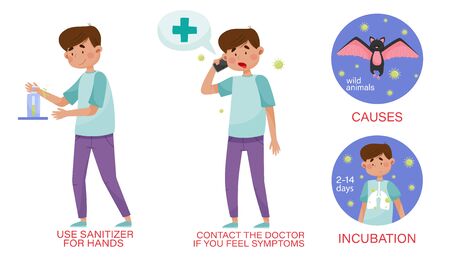Understanding Rosacea within the British Context
Rosacea is a chronic skin condition that affects millions across the UK, manifesting as persistent redness, visible blood vessels, and occasional bumps or pustules on the face. While its precise cause remains unclear, a combination of genetic predisposition and environmental triggers is widely recognised by medical experts. The prevalence of rosacea in the British population is notably significant, with fair-skinned individuals—common in the UK—being particularly susceptible. Unique challenges arise for those living in Britain due to the countrys distinctive climate: fluctuating temperatures, frequent rain, dampness, and brisk winds can all provoke flare-ups or exacerbate symptoms. Additionally, traditional British cultural habits—such as enjoying hot beverages, consuming alcohol (especially red wine), and partaking in spicy foods—can act as common triggers. Understanding these UK-specific factors is crucial for effective management and highlights the importance of tailored advice for British individuals coping with rosacea.
Dietary Habits in Britain and Their Influence on Rosacea
Diet plays a significant role in the management of rosacea, and certain British eating and drinking habits may contribute to or help control flare-ups. Understanding which foods and beverages are commonly consumed in the UK—and how they may affect rosacea—can empower individuals to make informed choices for better skin health.
Common British Foods and Beverages Impacting Rosacea
The typical British diet is diverse, but some staples are particularly relevant when considering rosacea triggers. Many people enjoy a daily cup of tea, indulge in spicy curries, and partake in social drinking. Each of these can have varying effects on skin conditions like rosacea.
| Food/Beverage | Typical Consumption | Potential Effect on Rosacea |
|---|---|---|
| Tea (black, green) | Often consumed hot, several cups daily | Hot drinks can trigger facial flushing in some; herbal teas (e.g., chamomile) may be milder alternatives |
| Spicy Curries (Indian, Bangladeshi cuisine) | Popular takeaway or home-cooked meal, especially in urban areas | Spices can dilate blood vessels and provoke redness or flare-ups |
| Alcohol (beer, cider, gin & tonic, wine) | Pubs and social events; moderate to frequent consumption common | Alcohol is a well-known trigger for many with rosacea, particularly red wine and spirits |
| Dairy (milk, cheese, cream teas) | Consumed regularly in teas, desserts, and savoury dishes | Dairy may worsen symptoms for some individuals; others report no effect |
| Roast Dinners (with gravy and vegetables) | A traditional Sunday meal across the UK | Heavy or fatty foods may occasionally cause flare-ups in sensitive individuals |
Practical Tips for Managing Diet-Related Triggers
- Monitor Your Response: Keep a food diary to identify personal triggers among these common British foods and drinks.
- Temperature Matters: Opt for lukewarm rather than hot beverages to reduce facial flushing.
- Choose Milder Flavours: Select less spicy options when enjoying curries or try yogurt-based sauces to soothe heat.
- Limit Alcohol Intake: If alcohol is a trigger, consider alcohol-free alternatives or limit consumption during social occasions.
- Diversify Dairy Choices: Experiment with dairy substitutes if you notice increased redness after consuming milk or cheese.
Navigating Social Situations in the UK Context
British culture often revolves around communal meals and drinks. Communicating dietary needs politely is widely accepted—whether at a pub or during afternoon tea. Don’t hesitate to request non-alcoholic options or ask about ingredients in restaurant dishes to manage your rosacea confidently within social settings.

Impact of British Weather and Environmental Triggers
The unpredictable nature of British weather plays a significant role in the management and severity of rosacea symptoms. With the UK’s famously damp winters, sudden temperature changes, and occasional bursts of strong sunlight, people with rosacea often find their skin condition fluctuating in response to these environmental shifts.
Damp Winters and Central Heating
During the colder months, high humidity combined with low temperatures can exacerbate rosacea flare-ups. Central heating, while essential for comfort, further dries out indoor air, stripping moisture from already sensitive skin. Those living in Britain may notice increased redness or irritation when moving between chilly outdoor air and heated indoor environments.
Practical Tips for Managing Winter Flare-Ups
- Use a gentle, hydrating cleanser and avoid hot water when washing your face.
- Apply fragrance-free moisturisers to strengthen the skin’s barrier against environmental stressors.
- Consider investing in a humidifier to maintain optimal indoor humidity levels.
- Wear a soft scarf over your face when outdoors to protect against cold winds.
Sun Exposure During British Summers
While the UK is not renowned for intense sunshine, even mild sun exposure can trigger rosacea symptoms. Many individuals underestimate the need for sun protection during overcast days common in Britain, yet UV rays penetrate clouds and still impact sensitive skin.
Coping Strategies for Sun-Related Triggers
- Apply a broad-spectrum SPF 30 or higher sunscreen daily, even on cloudy days.
- Opt for mineral-based sunscreens that are less likely to irritate sensitive skin.
- Wear wide-brimmed hats and seek shade during peak sunlight hours.
- Avoid sudden changes in temperature by gradually acclimatising between indoors and outdoors.
Environmental Awareness as Part of Everyday Management
Adapting your skincare routine and lifestyle habits to account for Britain’s variable climate is key to minimising rosacea flare-ups. Monitoring local weather forecasts and preparing accordingly—whether that means layering up in winter or carrying sunscreen year-round—can make daily management far more effective for those living with rosacea in the UK.
4. Daily Routines and Skin Care in the UK
Establishing a rosacea-friendly skincare routine is essential for those living in the UK, where fluctuating weather, indoor heating, and hard water can exacerbate symptoms. With a wide range of products available on British high streets and at local pharmacies, it’s possible to develop a simple yet effective regimen tailored to sensitive skin. Below are key guidelines and product recommendations for everyday management.
Key Steps for Rosacea-Friendly Skin Care
| Step | Purpose | UK-Available Examples |
|---|---|---|
| Gentle Cleansing | Removes impurities without irritation or dryness. | Cetaphil Gentle Skin Cleanser, Simple Kind to Skin Refreshing Facial Wash Gel |
| Hydration & Moisturising | Maintains barrier function and soothes redness. | E45 Cream, Aveeno Calm & Restore Oat Gel Moisturiser, La Roche-Posay Toleriane Sensitive |
| Sun Protection (Daily) | Protects against UV triggers common in the UK climate. | Altruist Dermatologist Sunscreen SPF 30/50, Boots Soltan Sensitive Face SPF 50+ |
| Avoidance of Triggers | Reduces flare-ups by minimising exposure to known irritants. | Fragrance-free, alcohol-free products; patch testing new items |
Tips for Adapting Your Routine to British Conditions
- Adjust for Weather: In colder months, opt for richer creams to combat dryness from central heating. During milder periods, lighter moisturisers may suffice.
- Mind the Water: Hard water is common across the UK and can leave residue on sensitive skin. Consider using micellar water as a final rinse or opt for bottled water if your tap water is particularly harsh.
- Patch Test New Products: Whenever trying a new brand or formulation from Boots, Superdrug or local pharmacies, apply to a small area first to monitor reactions.
- Simplify Steps: Avoid over-layering products; stick to the essentials—cleanser, moisturiser, and sunscreen—to minimise potential irritants.
Recommended British High Street Brands for Rosacea-Prone Skin
- Cetaphil and CeraVe (widely available at Boots and Superdrug)
- Eucerin and La Roche-Posay (often found at larger pharmacies)
- Aveeno (good for soothing oats-based formulations)
- No7 (Boots’ own brand with gentle options)
Navigating In-Store Advice and Pharmacy Support
Befriend your local pharmacist—many UK pharmacies offer personalised skincare advice and can recommend suitable over-the-counter treatments or refer you to NHS dermatology services when necessary. By building routines around trusted brands and following these guidelines, those with rosacea can enjoy greater control over their symptoms amidst Britain’s unique environmental factors.
5. Stress, Lifestyle, and Urban Living
Modern British life is often fast-paced and demanding, particularly in urban environments like London, Manchester, or Birmingham. Everyday stressors such as lengthy commutes on crowded public transport, striving for a healthy work-life balance, and regular social events at pubs or restaurants can all have an impact on those managing rosacea.
The Impact of Stress on Rosacea
Stress is a well-known trigger for rosacea flare-ups. The pressure to meet deadlines at work, juggling family commitments, and navigating busy city streets can elevate cortisol levels, leading to increased skin inflammation. For many Britons, the unpredictability of the weather and the challenges of daily routines only add to this underlying tension.
Commuting Challenges
Long commutes—whether by train, tube, or car—are part and parcel of life in many UK cities. These journeys can be stressful due to delays, overcrowding, and exposure to sudden temperature changes when moving between indoor and outdoor environments. Such conditions may aggravate rosacea symptoms, especially facial flushing.
Work-Life Balance and Social Pressures
The British culture values hard work but also cherishes socialising after hours. However, late nights out or weekend gatherings often involve alcohol and spicy foods—both common triggers for rosacea. The balancing act between professional obligations and maintaining an active social life can create additional stress that manifests physically.
Practical Stress-Management Techniques
To help reduce the impact of stress on rosacea symptoms, consider incorporating these strategies into your routine:
- Mindfulness and Relaxation: Practise mindfulness meditation or gentle yoga to help lower daily stress levels.
- Regular Exercise: Walking in local parks or joining a fitness class can improve overall wellbeing without overheating the skin.
- Plan Your Commute: Allow extra time for travel to avoid rushing, and try listening to calming music or podcasts during your journey.
- Limit Triggers at Social Events: Opt for non-alcoholic drinks or lighter food choices when out with friends.
- Set Boundaries: Prioritise downtime at home to recharge after busy days.
A Proactive Approach
By recognising how aspects of British urban living contribute to daily stress—and subsequently to rosacea—individuals can take simple yet effective steps to minimise flare-ups. With mindful adjustments tailored to the realities of life in the UK, it is possible to enjoy city living while keeping your skin calm and comfortable.
6. Community Resources and Support in the UK
Living with rosacea can be challenging, but the UK offers a range of community resources and health services to help individuals effectively manage their condition. Being aware of these options is essential for both ongoing support and proactive management.
NHS Services and Dermatology Clinics
The NHS remains a primary resource for those seeking medical advice and treatment for rosacea. General Practitioners (GPs) can provide initial diagnoses, prescribe medications, and refer patients to dermatology specialists if advanced care is required. Many local NHS trusts also offer dedicated dermatology clinics, ensuring that professional guidance is both accessible and tailored to individual needs.
Patient Support Groups
Several patient-led organisations in the UK offer invaluable support for people living with rosacea. Groups such as The British Skin Foundation and Changing Faces provide information on treatment options, emotional well-being, and opportunities to connect with others facing similar challenges. Online forums and social media groups further enable peer support, allowing individuals to share personal experiences, coping strategies, and practical tips relevant to British lifestyle factors.
Community Initiatives and Awareness Campaigns
Community health initiatives, often run by local councils or charities, are increasingly focusing on skin health awareness. These campaigns aim to reduce stigma, promote early intervention, and educate the public about triggers prevalent in British culture—such as alcohol consumption and fluctuating weather patterns. Engaging with these initiatives can empower individuals to make informed choices about their daily routines.
Accessing Professional Advice
Pharmacies across the UK frequently offer free consultations for minor skin conditions, including rosacea. Pharmacists can recommend over-the-counter products suitable for sensitive skin types commonly found in the British population, helping patients manage mild flare-ups between appointments with their GP or dermatologist.
Empowering Self-Management Through Local Resources
Utilising these accessible UK-based resources enables those affected by rosacea to take control of their condition within the context of everyday British life. Whether it’s joining a support group, participating in community education events, or consulting NHS professionals, integrating these avenues into your management plan can make a meaningful difference in long-term skin health and overall quality of life.


